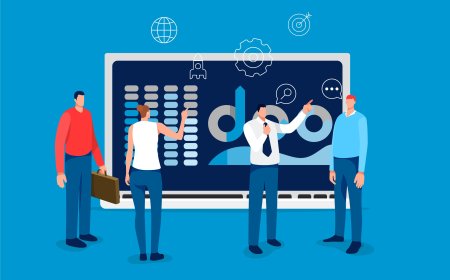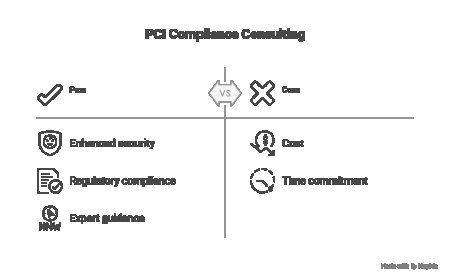Benefits of Learning DevOps
Benefits of Learning DevOps include faster deployment, improved collaboration, career growth, and mastering automation in modern software development environments.

Introduction
In today's fast-paced tech world, DevOps has become a game-changer. Bridging the gap between software development and IT operations, DevOps is not just a buzzwordits a career-defining skillset. If youre an aspiring IT professional or someone already in tech looking to future-proof your career, learning DevOps can offer massive advantages. From faster development cycles to improved collaboration and better job opportunities, DevOps continues to gain importance across industries. This article explores the top benefits of Learning DevOps course in Chandigarh, the career prospects it opens, and why its one of the most in-demand skillsets in todays job market.
What Is DevOps?
Before we dive into the benefits, its important to understand what DevOps is.
DevOps Defined:
DevOps is a combination of "Development" and "Operations". It promotes collaboration between software developers and IT operations teams to improve the software development lifecycle through automation, continuous integration (CI), and continuous deployment (CD).
Core Objectives of DevOps:
-
Faster delivery of software
-
Improved deployment frequency
-
Stable and reliable releases
-
Better collaboration between teams
-
Automation of manual processes
Top Career Benefits of Learning DevOps
1. High Demand and Job Opportunities
DevOps professionals are in high demand globally. Companies are actively hiring skilled DevOps engineers to improve their CI/CD pipelines and deliver faster services.
-
According to industry reports, DevOps engineer is consistently ranked among the top 5 tech jobs.
-
The demand spans multiple industriesIT, banking, healthcare, e-commerce, and more.
-
Startups and large enterprises alike are adopting DevOps practices, widening your job scope.
2. Lucrative Salary Packages
Because of the niche skills required, DevOps roles often command high salaries.
-
Entry-level DevOps Engineers earn 2030% more than traditional IT roles.
-
Experienced DevOps professionals can earn well over $120,000/year in the U.S. or ?20+ LPA in India.
-
Freelancers and consultants can charge premium rates due to specialized knowledge.
3. Improved Skill Set and Market Value
Learning DevOps isnt just about getting a jobits about becoming a well-rounded tech professional.
Key Skills You Gain:
-
CI/CD tools: Jenkins, GitLab CI, CircleCI
-
Configuration management: Ansible, Puppet, Chef
-
Containerization: Docker, Kubernetes
-
Cloud services: AWS, Azure, GCP
-
Scripting: Shell, Python, Bash
These tools and skills make you more marketable in various rolesnot just in DevOps but also in development, system admin, and cloud engineering.
Business and Workflow Efficiency
4. Faster Development Cycles
By automating testing and deployment processes, DevOps reduces time-to-market. Teams can push new features or bug fixes quickly, reducing delays and improving user satisfaction.
5. Better Collaboration Between Teams
DevOps fosters a culture of collaboration and transparency. Developers and operations teams work in sync, leading to fewer bottlenecks and faster issue resolution.
-
Improved communication = fewer misunderstandings
-
Shared responsibilities = stronger accountability
-
Continuous feedback = quicker improvements
6. Higher Software Quality
Through continuous testing and integration, DevOps helps in catching bugs early, resulting in more stable and high-quality applications.
-
Frequent code reviews
-
Automated testing pipelines
-
Rollback options for failed deployments
Personal and Professional Growth
7. Future-Proof Your Career
Technology is evolving rapidly, and traditional roles are becoming obsolete. DevOps, on the other hand, is:
-
Scalable across industries
-
Core to digital transformation strategies
-
Growing with the rise of cloud computing and AI
By learning DevOps, you position yourself in a recession-resilient and future-ready career path.
8. Flexibility in Roles and Projects
With DevOps knowledge, you can explore multiple roles:
-
DevOps Engineer
-
Site Reliability Engineer (SRE)
-
Cloud Engineer
-
Automation Engineer
-
Build & Release Engineer
You can also switch between industries or go freelance thanks to your versatile skill set.
Business-Level Advantages (That Employers Love)
Employers are eager to adopt DevOps because it offers real value to the organization.
Benefits for Employers:
-
Faster product delivery
-
Reduced failure rate of new releases
-
Quick recovery from incidents
-
Greater operational efficiency
As a DevOps expert, you become a key asset in driving these results, giving you leverage in salary negotiations and job growth.
Certifications That Boost Your Profile
Certifications validate your skills and give you an edge over non-certified candidates.
Popular DevOps Certifications:
-
AWS Certified DevOps Engineer
-
Docker Certified Associate
-
Kubernetes Administrator (CKA)
-
Microsoft Azure DevOps Engineer Expert
-
HashiCorp Certified: Terraform Associate
Investing in certifications also helps you keep up with the latest tools and methodologies.
Learning DevOps: Where to Start
Starting with DevOps can be overwhelming due to the number of tools and platforms. But breaking it down step-by-step helps.
Beginner-Friendly Steps:
-
Learn basic Linux commands and networking
-
Understand version control (Git)
-
Get hands-on with a CI tool like Jenkins
-
Learn Docker and basic Kubernetes
-
Practice deploying apps on AWS or any cloud platform
-
Join DevOps communities and forums
Many online platforms like Coursera, Udemy, and edX offer structured courses.
Conclusion
Learning DevOps is a powerful investment in your tech career. It not only equips you with high-demand skills but also opens doors to better-paying roles, exciting projects, and long-term stability. Whether you're just starting in IT or looking to level up, DevOps can help you stay relevant and competitive. With automation, collaboration, and innovation at its core, DevOps truly shapes the future of IT careers.
FAQs
Q1: Do I need a programming background to learn DevOps?
No, but basic scripting knowledge (like Python or Bash) is very helpful.
Q2: Can beginners learn DevOps?
Yes! With the right learning path, even freshers can start a DevOps career.
Q3: Is DevOps a long-term career?
Absolutely. With increasing digital adoption, DevOps is only growing in demand.
Q4: How long does it take to learn DevOps?
You can get job-ready in 46 months with consistent learning and practice.
Q5: Is DevOps only for developers?
No. DevOps roles are ideal for system admins, testers, cloud engineers, and even IT support professionals transitioning to modern roles.







































